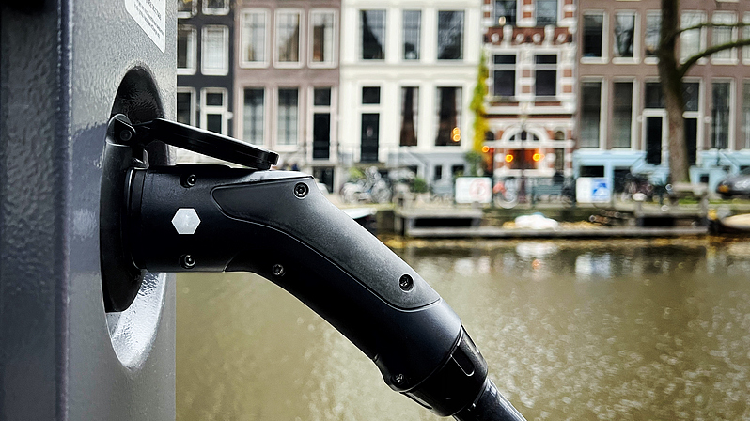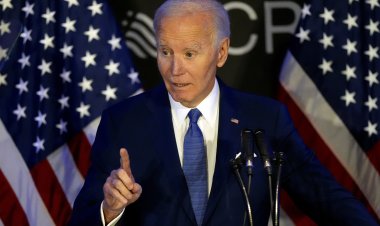Is a Trade Conflict Occurring Between China and the EU?
The recent vote by EU member states to impose tariffs on electric car imports from China has created tension in trade relations between China and the EU. This situation highlights the lack of success in the extensive policy consultations between these two key trading partners. Furthermore, it indicates that the EU is committed to a self-centered approach, prioritizing its own interests over mutual compromise in addressing trade frictions.

The recent vote by EU member states to impose tariffs on electric car imports from China has heightened tensions in trade relations between China and the EU. This situation illustrates that despite extensive policy discussions between these two significant trading partners, the desired outcomes have not been realized. Furthermore, it indicates that the EU is likely to continue pursuing a self-centered approach in managing trade frictions rather than seeking mutual compromise.
If the EU does not find a way to manage expectations and reach a compromise in the final negotiation phase before the end of October, the risk of a trade war between the EU and China could escalate. Hungary's Prime Minister Viktor Orban has suggested that Europe is entering into an "economic cold war" with China. Additionally, certain European media outlets have begun to analyze potential retaliatory measures that China might take and express doubt about avoiding a mutually escalating or prolonged "trade war."
In contrast to previous approaches, the European response to Chinese-made electric vehicles has taken a distinctly political tone from the outset, aiming not only to protect European automotive "industrial security" but also to establish a precedent for its "economic security strategy." Consequently, EU institutions initiated an investigation on behalf of the domestic auto industry, overriding objections from the European business community during the process.
By elevating its policy expectations to political and security levels, the EU strays from economic principles and market norms, thereby complicating China-EU economic cooperation.
The investigation revealed that automobile manufacturers from Germany and other European nations hold a significant share of China's electric vehicle exports to Europe. Should the EU impose high tariffs, both Chinese and European car manufacturers could face increased costs, ultimately harming all parties involved. European consumers might also lose access to more affordable options due to increased barriers for Chinese electric vehicles.
Moreover, while the EU's intent in using tariffs to shield its auto industry from "unfair competition" is clear, the long-term repercussions may hinder the European car industry's ability to achieve sustainable and healthy growth due to excessive protectionism.
Both China and the EU are pivotal players in the global economic transformation, displaying a high level of policy alignment and shared industrial objectives within the contexts of green and digital economies. Europe's established automotive sector benefits from a wealth of technology and a robust market, while China excels with its innovative capabilities and extensive industrial scale. This collaboration could foster a powerful alliance in electric vehicles and related green industries. Nonetheless, Europe's perception of itself as the "authentic market economy" juxtaposed with classifying China as a "market distortion" could lead to an emphasis on competition over collaboration.
Although the disputes surrounding electric vehicles represent only a facet of the broader China-EU relationship, the outcomes signify a prevailing trend. While the EU might draw some comfort from contrasting its approach with the U.S. imposition of 100 percent tariffs on Chinese electric vehicles, such competitive political dynamics could ultimately compromise Europe's economic interests and internal cohesion.
Given Orban's warnings about an "economic cold war" with China, the substantial resistance from German automakers against the tariffs, and widespread concerns about a potential "trade war" among EU member states, Europe must recognize that deviations in its policy toward China could incur costs exceeding any perceived economic advantages.
As the deadline approaches for concluding negotiations by the end of October, there remains a pressing need to avert a trade war that could hinder global economic recovery, transformation, and upgrading. A reasonable resolution could still be attainable during the upcoming negotiations.
One potential approach is to draw on previous compromises related to photovoltaics and establish a mutual agreement on a minimum price for Chinese-made electric vehicles. Though this would not resolve all issues, it would create a framework for limited cooperation in the electric vehicle trade. A second suggestion is to heed the concerns of the majority of European nations, particularly those that abstained from the vote.
Ultimately, China and the EU should aim to transition their relationship in the electric vehicle sector from one of trade competition to industrial collaboration. The success of this strategy hinges on whether the EU can move beyond rigid adherence to "EU rules" and collaborate with China to identify shared interests, thus fostering a cooperative environment in the green industry that benefits both parties instead of pitting them against one another in a zero-sum scenario.
Allen M Lee for TROIB News
Find more stories on Business, Economy and Finance in TROIB business












